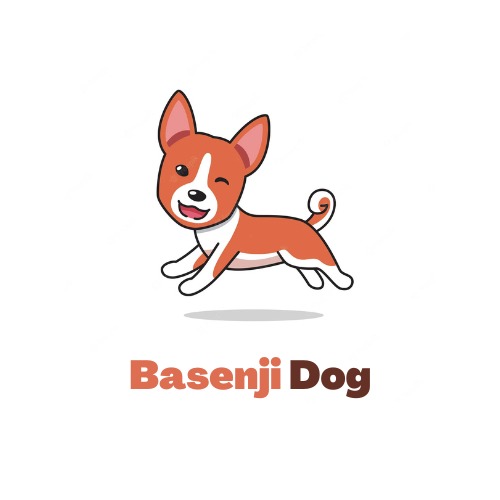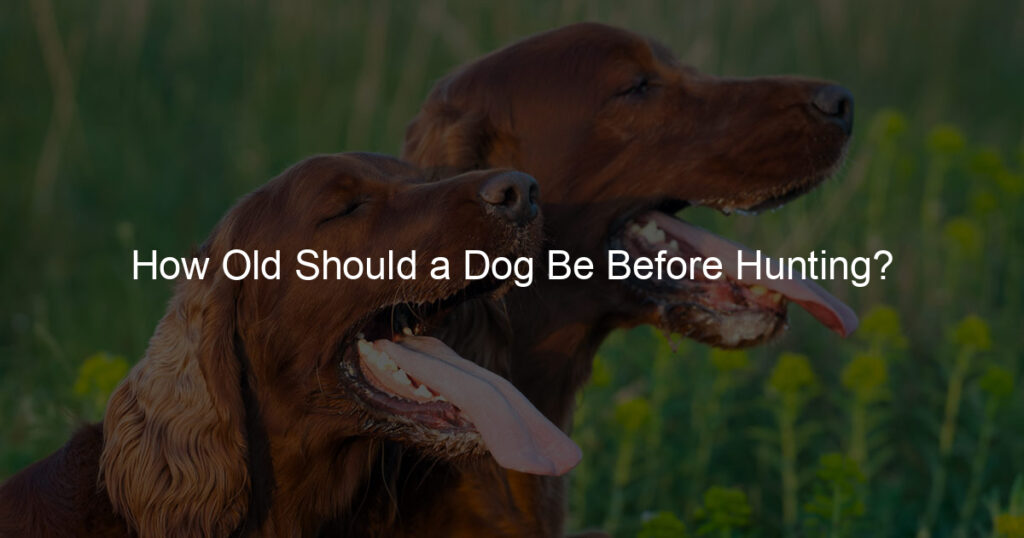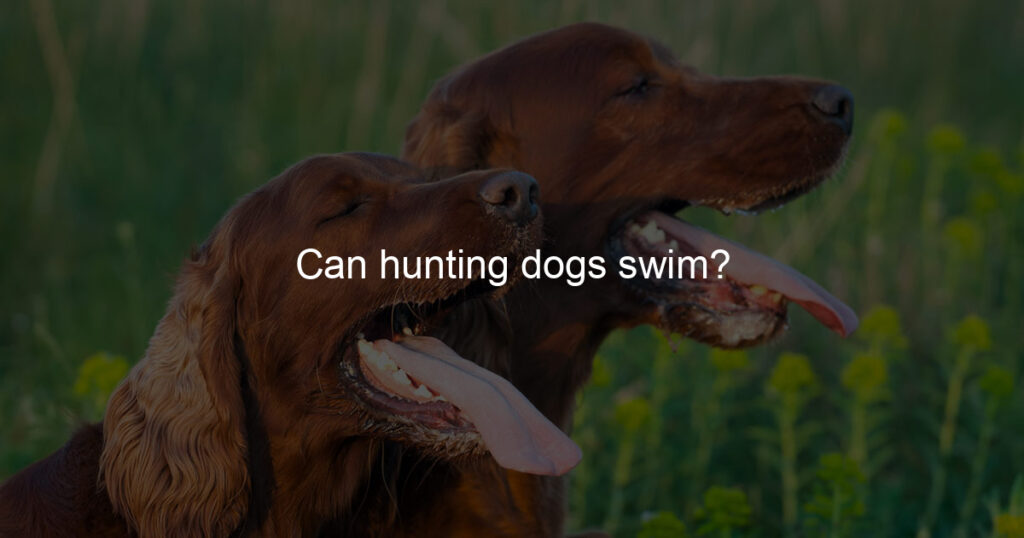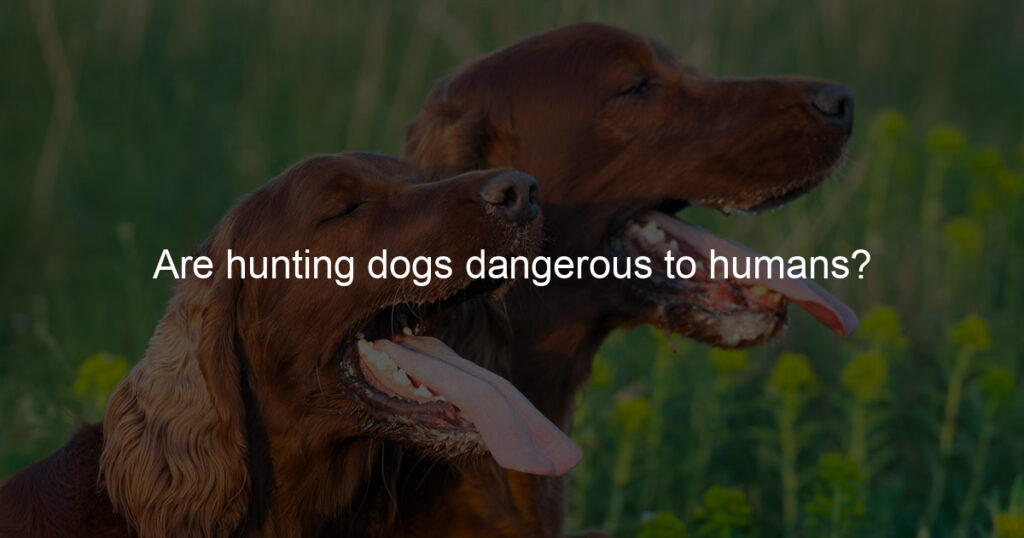Before you take your dog out hunting with you, it’s important to consider his age and fitness level. A younger dog may not have the stamina or experience to handle a long day of hunting, while an older dog may not be able to keep up with the pace. Ultimately, it’s up to you to decide what’s best for your dog based on his individual personality and abilities.
What age to start training hunting dogs?
Starting to train a hunting dog at an early age is important to have it hunt efficiently later. While puppies can understand basic commands as early as eight weeks of age, they will be more likely to retain the training with time and practice if started at a younger age.
Ideally, you should begin introducing a pup to different smells and environments around 16 weeks old. This is when they comprehend commands better and start forming meaningful associations. Training tools such as dummy launchers will also provide your pup with positive experiences while teaching it how to fetch retrieved items back.
Overall, beginning training your dog for hunting around 16 weeks old offers a more efficient learning experience that yields the best results in less amount of time.
Puppy hunting age
Searching for the right puppy can be an exciting journey, but it’s important to take into account all of the variables before making a decision. One factor that should be considered is the age of the puppy – puppies can usually begin hunting around 8 to 10 months old, depending on their breed and activity level.
Older puppies may be preferable as they are more likely to have received some basic training and obedience, meaning you won’t have to start from scratch with your pup’s instruction. Of course, each dog is unique, so visiting a few pups in person and observing their behavior is never a bad idea when selecting the perfect canine companion!
Hunting dog age
Hunting dogs are incredible working animals and have many advantages compared to humans when it comes to hunting, especially with regard to their age. Dogs mature far quicker than adult humans do and in some cases can even access areas that are off-limits to people, due to their smaller size.
Additionally, unlike adult humans, dogs continue to be alert and active for much longer periods of time even when out in the field carrying out a prolonged activity. This is why, in most countries and states, there is no minimum hunting age for dogs as they tend to possess more skills than a person of any age may have.
What age to train a gun dog?
Gun dogs offer a lot of companionships, obedience, and athletic abilities to gun dog owners. When it comes to training them, however, it is important to start young. Not too young that safe handling is an issue as puppies can sometimes bite, but earlier than 12 weeks of age if possible.
It’s best to start off with just a few minutes of training each day when their attention span allows for it and gradually increase the duration and the challenges over the weeks. Puppy classes are always a great way to help socialize gun dogs with other people and canines alike as well as get acquainted with basic commands such as sit, and stay.
A well-trained gun dog may even be able to track a scent in the woods or distinguish specific targets at shooting ranges.
How old should a dog be to start training?
From experts to experienced dog owners, everyone agrees that the best time to start training a pup is around 8-10 weeks old. During this early period, puppies are in an impressionable stage and can quickly absorb the fundamentals of obedience training. Not only is the pup at an optimal learning age but it allows them time to adjust to their surroundings and bond with their new family.
Starting basic obedience and housebreaking during these early weeks allows time for each lesson to take root and become part of your pup’s development. Training should always be positive, as teaching unwanted behaviors through corrections or punishments could lead to troublesome behaviors later in life.
A puppy who has learned good habits from early on will have a stronger bond with its owner and be more likely to stay obedient on walks, at play places, etc. While there can still be some bumps in the road of training starting early sets them up for success!
Summary
In conclusion, it is clear that deciding when to introduce a dog to hunting can be a difficult decision. Nature, nurture, and the right amount of training all play a role in making sure your dog is not only safe but also successful. Ultimately, though, it is up to you to make sure that your dog is comfortable and confident while out in the field.
Taking the time to train and practice with your pup before going on any hunting trips will ensure that they stay out of harm’s way while still having fun. Keep an eye out for signs of discomfort or exhaustion and remember to have patience when introducing new aspects of hunting so as not to overwhelm your pup. With the right care and attention, you’ll be able to find the perfect time for them to join you on your next outing.








